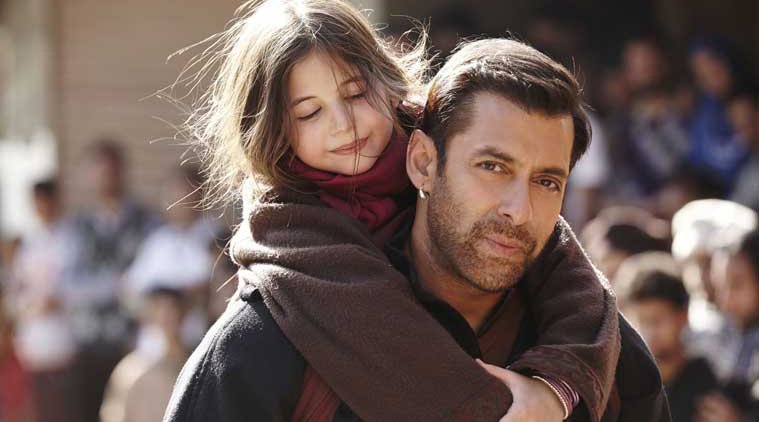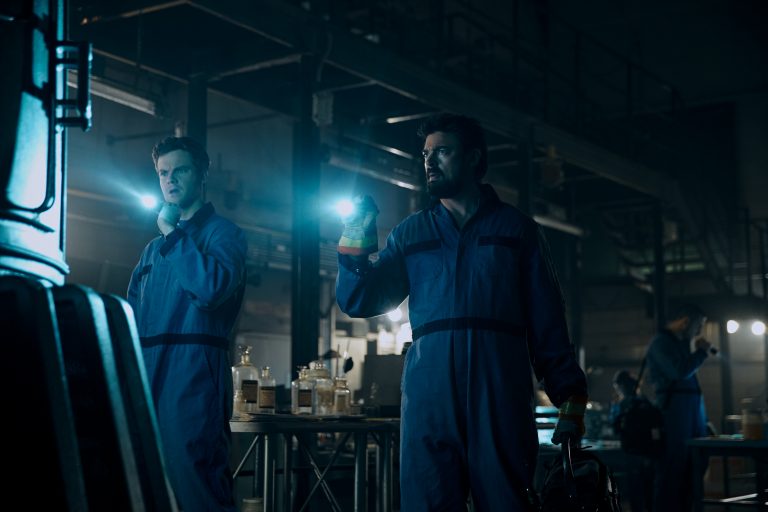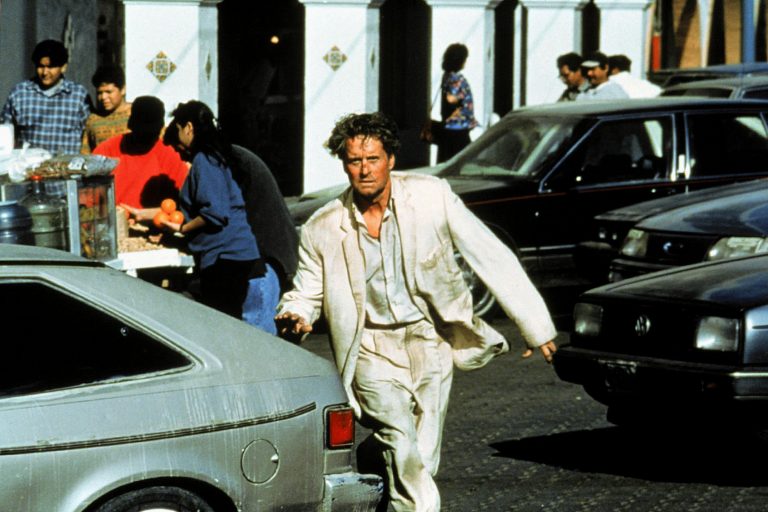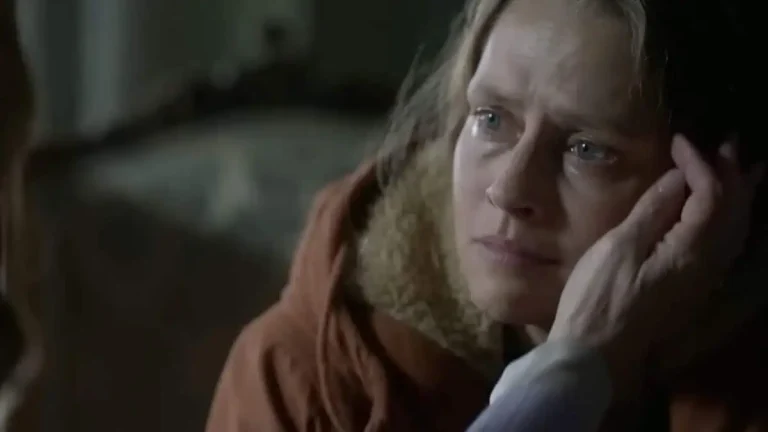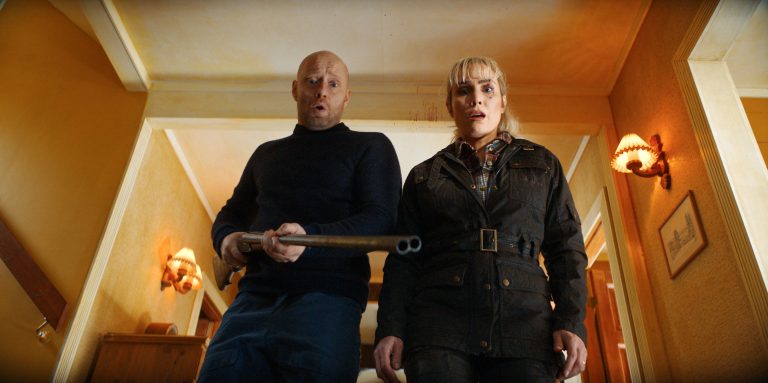In the broader sense, HBO’s “Succession” had always been a biting commentary on dysfunctional media dynasties that place corporate interests ahead of moral and journalistic ethics. In season one, traffic congestion served as a plot point that left Kendall Roy stuck in traffic while plotting the boardroom ouster of his father, Logan Roy. We saw him stuck in traffic, forced to leap out of his car as he ran in his leather-soled shoes through the crowded streets of New York to the Waystar Royco headquarters, delivering his regicidal ultimatum to the other board members while gasping for breath over the speakerphone.
The same vulnerability, however, never translated to their business lives as the Roy siblings remain immune to the chaos and fire that consumes New York City on the day of Logan’s funeral – just a day after they declare a win for their right-wing Republican candidate. As the protests erupt outside, the erupting anger is viewed from either inside the limo or above the streets; the mourners are totally insulated from how they’ve pushed a country into the abyss as they pat themselves on making a night of good TV.
Throughout its final season, showrunner Jesse Armstrong willingly put the tragedy of the Roy kids front and center, with the satirical aspect often taking a backseat – except when it pierced through their own willfully ignorant actions that eventually drove the country into an abyss. Moreover, with Logan’s unexpected death – which sounds ironic in a show whose title literally promises the same – we further saw how even these super-rich, fiscally untouchable conservatives still couldn’t insulate themselves entirely against the vagaries of the real world. That made Kendall’s endless plea to get the best help available at 35,000ft more heartbreaking to watch in episode 3. Since then, none of the other siblings have processed the kind of evil their father truly harnessed as Kendall has, which makes his eagerness to become the next Logan Roy all the more devastating.
Perhaps similarly tragic is seeing Shiv talk about how she won’t be a great mother – something that further gets compounded as she sees her own at the funeral. She continues to see the event as an opportunity to grab power in the only way she’s always known: by backstabbing and downplaying other people, as she recognizes it’s the only way for her to hold onto such semblance in a cis-male-dominated empire. Potentially, by the end of the penultimate episode, she has blocked the GoJo deal with Jeryd Mencken’s support – the fascist Republican candidate likely to win the Presidential race.
Despite not having its characters undergo any transformative change throughout its four seasons, the makers gave us some of the most remarkable hours of television. That’s because, through a team of excellent writers, Armstrong seamlessly echoes the visceral sensation that most people around the globe have seen and felt while witnessing the rise of right-wing populist leaders over the past few years. The show masterfully channels that impending feeling of doom while comprehending a fascist leader’s win precisely because of how true to the cultural current the essence of the show feels.
In the course of its run, Armstrong’s prestige comedy-drama hybrid had become an ensemble exploration of gnarled humanity at the highest levels of power, offering resonances with contemporary media dynasties and the rise of crony capitalism. The series aired its final episode, “With Open Eyes,” on May 28th, gaining a widely satisfying response. Along with doing justice to the choice of going out during the prime of the show’s popularity and critical acclaim, the final episode also upheld the legacy it had built during its run. The Roy kids seem to have enough mileage for the show to expand upon their man-child personas as they continue living in their fiscally conservative echo chambers. But it’s in the creators’ choice not to stretch the story beyond a point that compounds its place as one of the great shows in television history.
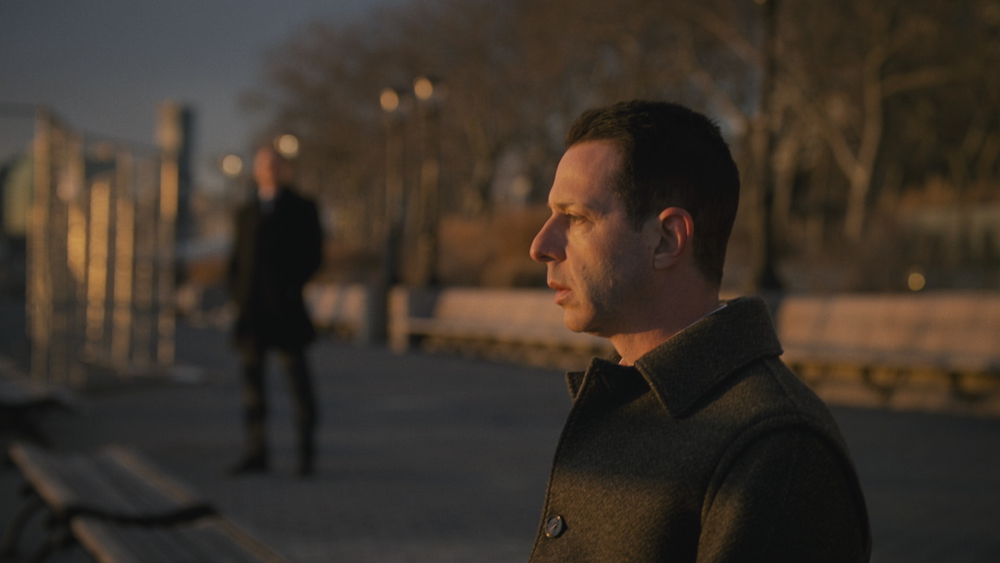
When it comes to TV show endings, the audience begins to feel ownership over the fictional characters’ lives. When Shiv says, “We played outside his office because we wanted him to hear,” you already know how these kids have spent their entire lives trying to impress their dad with something he knew they weren’t worthy of. Most TV shows would’ve dedicated full episodes behind such snippets into flashbacks. But it’s the bedrock choice of placing a subjective camera around these characters that “Succession” drove its essence from. The entire show is consciously shot as though a real camera were in the room, rather than going for more ideal shot compositions.
In other words, the cutaways in the show always have an unspoken subjective motivation and personality attached to them. That’s why it becomes necessary to point out how that one time when the show decides to go with a different cut-away – an artistic choice made to reinforce the gravity of the dramatic moment. It comes in “America Decides,” where Roman claims that nothing significant will happen in the long run while patting himself on the back for making a night of good TV. It’s here when we cut to Shiv as she says, “Things do happen.” As the audience, we knew the eventual fate of these characters would be dreadful.
In most stories, the death of a close one tends to put things into perspective. But the Roy kids seemed more off-tune than ever after Logan’s passing – all desperate to seek their father’s validation from beyond the grave. By the end of the show, we see Roman hating himself for feeling like a failure, but that’s also because he’s the only one who accepts that he can’t ignore his feelings. After her last in-person conversation with Mattson – where she pitched her husband, Tom, as someone who would be more suitable for the CEO position – Shiv reverts to square one.
Her only semblance of power stems from her close relationship with a man in charge – only this time, she’s been promoted to the position of kingmaker. After all, time and again, we’ve seen how Tom was the only one in the show who sneakily rose to the top; the only character who seemed to have dedicated his hours to genuine work, albeit in the fear of losing his position. His conversation with Shiv from episode 6, “Living+,” most explicitly reiterated his idea of an American dream. Now, he was living it.
As the show taught us all along, people aren’t always people. They are eyeballs, or assets, when and only when they’re counted as votes. At the final board meeting, Shiv decides that she can’t stomach Kendall as the next C.E.O.. Perhaps it was because she saw Kendall’s singularity of only wanting that one thing his father placed in his head when he was seven that he couldn’t resist not keeping his feet over the desk where his father once sat. As she leaves the board room without casting her final vote, Shiv is followed into the hallway by Kendall and Roman, as we get a confrontation between three siblings in a nearby conference room. Here, we see Ken reinstate his middle name by the traumatic reenactment of what his father did to his brother as he physically abuses Rom. In this final moment of desperation, they’re once again left outside the room where the serious people make decisions.
“He made you a playground, and you think it’s the whole world,” Marcia says to Shiv in one of the show’s earlier seasons. By the end of the show, Kendall becomes the worst of his dad, but with none of the powerful qualities of Logan Roy. “I am like a cog built to fit only one machine,” he declares in a futile attempt to gain Shiv’s vote. Yet he doesn’t realize he’s the cog his father made. The Roy siblings spend the final episode closed to themselves while turning inward than ever before. Perhaps the sense of realization comes when they watch the footage of a more joyous and cheerful Logan with his colleagues and Connor: the realization of why it always seemed like they were left in the playground and why their father thought they were not serious people.
“Succession” ends with Kendall leaving the Waystar headquarters and walking to the Hudson River with Colin behind him, echoing the shot of Logan taking a walk from the season premiere. We’ve seen Kendall this way repeatedly, surrounded by a water body that either becomes a means of his ultimate doom or a nod to his spiritual renewal. The finale makes clear how he hasn’t grown over the course of the series, bringing his character arc a full circle as he hasn’t learned anything.
He sits at the park bench, but what will Kendall do next? What happens to him now? Those are all valid questions, but we know who he is now after seeing him for four seasons. Ultimately, he sits there, trapped between the river and away from the corporate skyscrapers that have dwarfed his existence. This is Ken’s purgatory now, as he’s left in isolation with the ghost of Logan and his cover-ups standing right behind him, as reinforced in the final shot of Colin standing behind him, supposedly protecting him from the inevitable flood of insecurity and grief.
Much of Michael Corleone’s tragedy in “The Godfather” was that he was too much of a Corleone to escape his devastating fate. But Kendall believes his tragedy is that he isn’t enough of a Roy to fulfill his apparent destiny. As the audience, however, we look at him from above his playground, knowing all too well that by not securing the CEO’s position, Kendall saves himself from becoming his father, whom he knew to be evil. Alas, the gravest tragedy of the show remains in how he himself can’t see through it. Maybe the poison does drip through.

